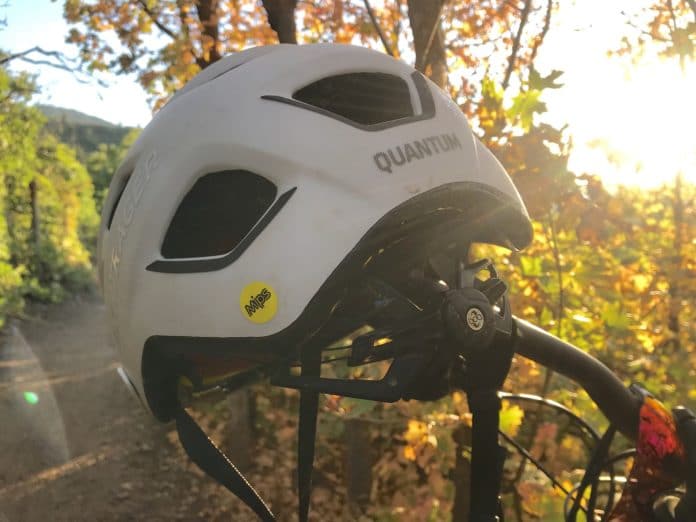It’s a lovely summer day and you are outside enjoying the sun and the air brushing against your skin. The feel of the bike below you is as familiar as walking in trainers. It should be — you’ve been riding a bicycle since you were a little kid. But then, boom! Out of the blue you are splayed out on the concrete wondering what just happened. If you are lucky, and if you have the right helmet, maybe you walk away, or maybe you break some bones. If you are not wearing a helmet, something far worse may have befallen you.
Escaping a Crash
Our friend and irrepressible athlete Joe Z, 85, recently crashed his bike. He was on the street cruising along when he got momentarily distracted and crashed into the side of a car. This earned Joe a broken hip, but amazingly, apart from being shook up and mildly embarrassed, he is otherwise fine. His helmet, though, was utterly destroyed. Which is great because in the process of getting crushed, it saved his head and his brain.
The helmet he was wearing is called a Bontrager Quantum with the MIPS inner device. “I bought it last April. Virginia Tech, a third party, tests biking helmets each year and gave this MIPS device a 5-star rating, along with a new system called the WaveCel.”
Brains Over Style
We love cycling; it is probably as close to the sensation of being a fleet-footed quadruped as we humans will ever get. We have noticed that as we gain years, our quick reaction times decrease, which increases the possibility of something like what happened with Joe. As much as we don’t like the feeling of wearing a helmet, the idea of brain damage overcomes our sartorial compulsions.
MIPS Technology
The MIPS technology refers to Multi-directional Impact Protection System and was developed by scientists in Sweden. It allows the helmet to provide greater protection if you crash with impacts from an angle that cause the helmet to rotate. The rotation saves considerable acceleration trauma to the brain from an impact. The thing to remember is that impact brain damage is usually from the brain itself moving in one direction, and the skull in another. Think football players and boxers. The MIPS is a clever solution that mitigates some of the force.
These helmets are about $100, and if you crash it in the first year, they will send you another for free.


